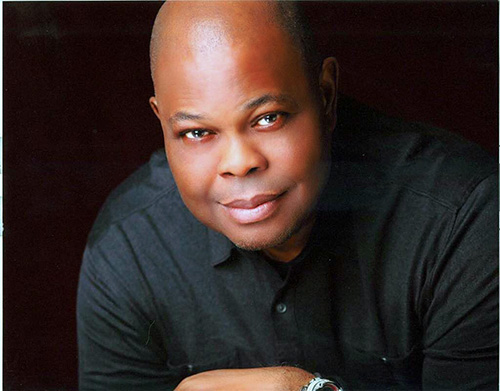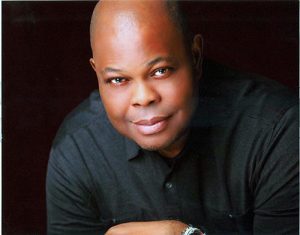In my book; Biafra, The Horrors of War, The Story of a Child Soldier, I wrote about forgiveness as an essential ingredient of human existence and survival. I had summarized about how the Igbo were able to forgive those that grievously and aggregiously caused the death of three million of their own. The absurdity of the ability of the Igbo to forgive the torments and agonies of the war, and their facility to regain equanimity in the wake of the unspeakable atrocities and dehumanizing scars inflicted on them, is a remarkable feat in the history of the world. This attribute, undoubtedly, is one hardly paralleled in the history of genocide, repression and prosecution in the world.
In this same book, I explored and speculated on how the Igbo obtained and preserved these forgiving traits and spirits. I attributed it to their religiosity, their cultural dispositions, and to their God-given nature and talents. I thought also that the Igbo may be a special breed and species of human beings that are created to endure and bear no malice. That they may have been created by their God to be culturally disposed against harboring any form of hate for their enemies and tormentors. I figured that perhaps there is something in the Igbo DNA that activates a forgiving nature, a natural God-given ability to endure egregious cruel acts and aggravated malice without reciprocating in kind.
Whether it was religion, cultural traits and other unknown variables that brought about the Igbo forgiving spirit, it is worthy at the least, to ponder in reflection, what enables one to credit the Igbo collectivity for these special moral and social attributes.
I believed, and wrote in my book, that when you forgive you win, even as the legendary disposition of the Fulani on this subject of forgiveness, is a direct contradiction to this position. The Fulani, they say pridefully, do not forgive nor forget. The Igbo cultural bequest inclined them to an opposing view: that forgiveness increases one’s sense and reality of wellbeing, peace and tranquility.
Indeed, many believe that forgiveness is an instrument for stopping hate, wars, divisiveness, and for promoting lasting peace, unity, equity and stability in the world.
I wrote, and have heard many preachers preach that forgiveness is an essential tool for growth both for individuals, races, tribes and nations by entailing a divine reciprocity; for when we forgive others, God forgives us. The Igbo spirit of forgiveness is an amazing example of how to create spiritual, physical and even fiscal growth and sustainability.
After the publication of my Biafra book, an old friend of mine, an intellectual giant, read the book, and wrote me a passionate private review. He was no doubt enthralled with the book, but took an exception to the Igbo forgiveness part. He was bitterly disappointed with what he referred to as “a lame forgiving spirit” of the Igbo. He was visibly upset with the Igbo disposition to forgive those that constantly promise them death, and promptly, do not hesitate to deliver death and its fetid deadly breath at their doorsteps at will. He contended that the Igbo must rise up and avenge all the killings they have suffered.
I was born with a strong and practicable Christian faith. My parents, through everyday examples, instilled in me strong values of how to practice and follow the good life that Jesus Christ lived in the true sense of the words in the Bible. But my friend’s view and admonition on forgiveness shook my faith a notch. My friend and I engaged in long conversations, and sometimes, protracted arguments on this subject, he, trying to fervently convince me that there is no place for forgiveness in all our facets of life; be it privately, or collectively. He preached to me the doctrine of: “Do me, I do you, God no go vex.” I must confess that I became conflicted with the many strong and empirical arguments presented by my friend on this subject.
The spirituality of forgiveness is framed precariously around the concept of faith and belief, compelling us to, no matter what, to forgive. It is a very complicated phenomenon, frequently positioned as an alternative to anger, agony and pain, whereas many believe that it is not essentially useful to forgive when you have been very badly offended. Many claim that we have no obligation, be it moral, religious or otherwise to forgive those that have done heinous things that dehumanize people. The argument is that the process of forgiveness is tedious, time-consuming, emotionally draining, and energy sapping. And that because of the psychological burden of forgiveness, the benefits are very minimal for those doing the forgiving, and may not serve any useful purposes.
On a personal level, I have suffered many disappointments in the hands of family members and friends that may have offended me one way or the other. In the same vein, I believe that I, too, may have offended others. I have, over the years come around to forgiving many of those that have exhibited remorseful attitudes and become apologetic about the things that they may have done to me. For many others, I have learnt to accept their misgivings, and have grown to reckon that they may never have redemptive minds, therefore, must be kept away from my life in a meaningful way.
Only recently, I played a pivotal role in the elevation of a bosom friend to a very lofty position of power. This strategic move was planned as an alignment that will, above every other variables, enhance the wellbeing of the entire society through the deployment of visionary sacrifices. A well-detailed articulated plan was drawn up, detailing every step consequent to achieving optimal success. Once my friend got appointed, he became a changed man, deviating from all our plans, and exhibiting rather centrifugal behavior towards me. As a result, our relationship became frayed and thoroughly fractured. I walked away from my now very powerful friend, and swore that I would NEVER have anything to do with him as long as I lived. In this case, forgiveness became a far-fetched illusion. I became once again, conflicted.
The reason for my bosom friend’s malfeasance and misbehaviour are as numerous as the cases themselves, and they may have stemmed from greed, avarice, opportunism, self-aggrandizement, desperation, narcissism or any other imperfect human impulses. My friend was reckless with our deep friendship, abusing it to the point where I began to recall my university philosophy classes, and blaming myself for learning the wise words of the great philosophers and not practicing them. What came to my mind instantly, were the piercing words of Niccolo Machiavelli on Power, when he cautioned that: “Whoever is the cause of another becoming powerful, is ruined himself; for that power is produced by him either through craft or force; and both of these are suspected by the one who has been raised to power.”
The story of my friend’s betrayal of trust and his inordinate desecration of our friendship, is a story that belongs in several volumes of books. In our situation, I considered forgiveness, not because I desired to repair our relationship, or because I thought that forgiving him would set me free from the pain and agony that he willfully inflicted on me, but because I made forgiving him my personal journey with my creator, that may serve my healing and growth and provide me the freedom from the burden of sorrow and anguish.
As we ponder the difficulties inherent in us humans to forgive others and question the Igbo passivity in this department, we must all still adhere to the Igbo deep-seated fidelity to the scriptural doctrine of turning the other cheek, and forgiving even those perpetrators of the most iniquitous and beastly actions against us.
It seems clear to me today, that for individuals, tribes, races and even countries to grow and prosper, we must all embrace the Igbo philosophy of forgiveness. We must all emulate the Igbo path of profound love of one another, and others, regardless of the wicked and insidious past actions against us as individuals, or as tribe and race, even as Forgiveness remains a strong pill for us to swallow.
OKEY ANUEYIAGU
A Professor of Political Economy
Is the Author of:
Biafra, The Horrors of War,
The Story of A Child Soldier
January 18, 2025



